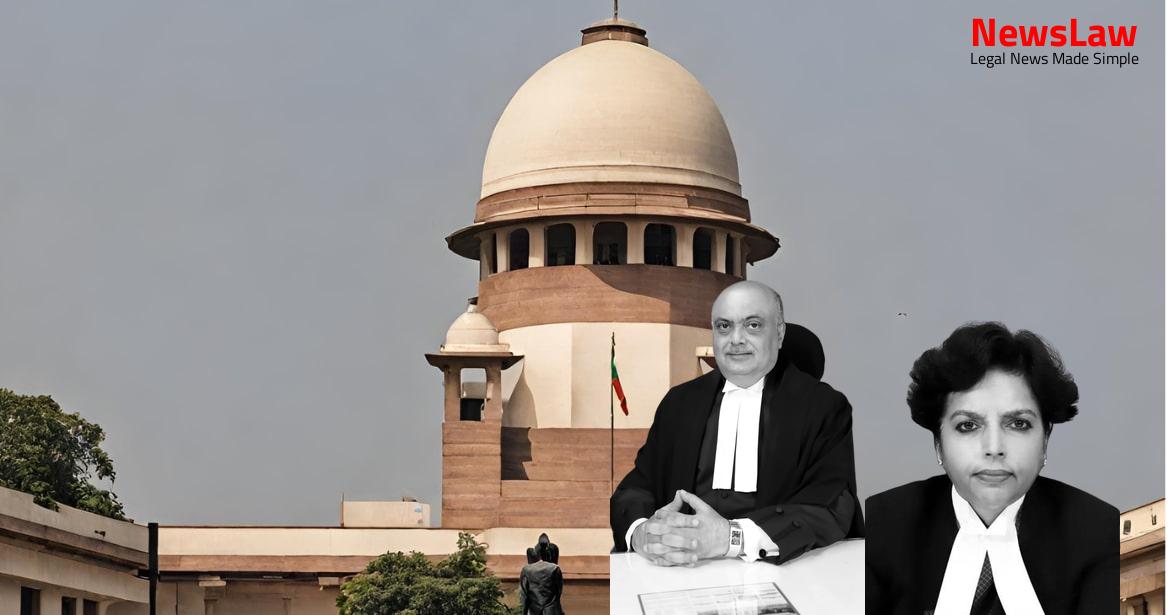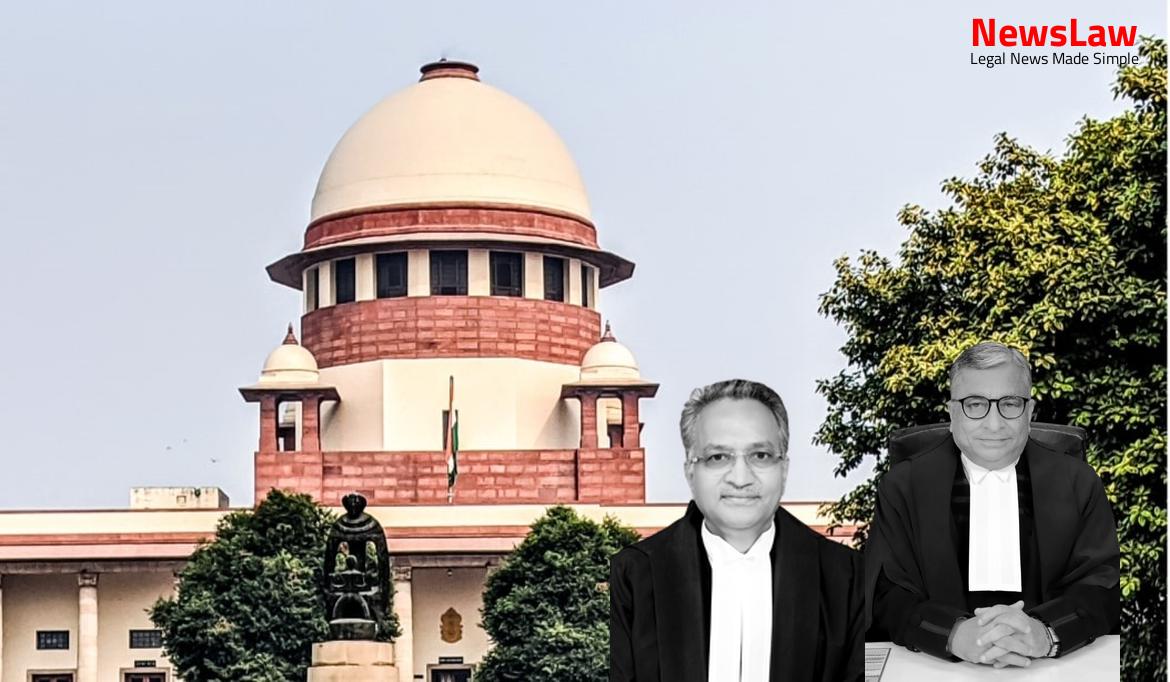In the case of RKK vs. ACK, a major legal battle ensued over family properties between the descendants of RKK and the successors of ACK. The dispute revolves around the Kamla Nagar property and the Malcha Marg property, highlighting the complexities of joint family funds and oral settlements. The High Court’s recent judgment delves into the nuances of property ownership and family settlements, shedding light on the legal intricacies at play.
Facts
- The Trial Court decided that the suit was bad on account of partial partition against the appellants, stating that the circumstances provided by them were not enough to prove the Malcha Marg property was purchased from joint family funds.
- The Trial Court noted in its judgment that the plaintiff (Actual Name) admitted in cross-examination that the Kamla Nagar property was the only joint family property.
- The High Court’s Impugned Judgment allowed the appeal regarding the Kamla Nagar property filed by Actual Name and dismissed the appeal concerning the Malcha Marg property filed by the appellants.
- RKK purchased the Kamla Nagar property in his father TCK’s name in 1941 and a house was constructed in 1950.
- Malcha Marg property was acquired by RKK and constructed in the name of Smt. Shyama Khanna, wife of ACK.
- After RKK’s death in 1978, ACK claimed a share in the Kamla Nagar property as joint family property.
- An oral settlement in 1979 resulted in a payment of Rs. 55,000 by RKK’s legal heirs to ACK for his share in the Kamla Nagar property.
- In 1983, ACK’s legal heirs filed suits for the partition of properties at Shimla and the Kamla Nagar property.
- The Trial Court in 2008 dismissed the suit regarding the Kamla Nagar property in favor of the appellants, who claim that the Malcha Marg property was funded by RKK and family income from Regal Cinema Business.
- Appellants are descendants of RKK while respondents are successors of ACK.
Also Read: Territorial Jurisdiction in Power of Attorney Case
Arguments
- ACK’s Wealth Tax Returns from 1979 until his demise in 1983 were not presented or discussed in any forum or court, indicating he did not claim any part of the Kamla Nagar property during that period.
- The High Court in RFA No.439 of 2008 stated that the payment of Rs.55,000 was for ‘some other account’ and not towards the Kamla Nagar property.
- The High Court also noted that the benami aspect was not pressed during the RFA hearing.
- The argument that the payment of Rs.55,000 was for some other purpose was deemed erroneous and presumptuous due to lack of evidence or discussion.
- ACK never raised a claim regarding the Kamla Nagar property which was in the possession of the appellants from 1979 to 1983.
- Payment of Rs.55,000 was received in ACK’s personal account, not his business account, supporting the family settlement claim.
- No valuation was done by any valuer, and no documents proved that the Rs.55,000 payment was for ACK’s share in the Kamla Nagar property.
- The registration of documents related to property rights over Rs.100 was not done, reinforcing the oral settlement argument between RKK’s LRs and ACK’s LRs in 1979.
- The Trial Court and High Court concurred that the Malcha Marg property was not joint family property and that the Kamla Nagar property became solely owned by the appellants after the 50% share of ACK was bought for Rs.55,000.
- ACK’s Wealth Tax Return in 1965-67 valued the Kamla Nagar property around Rs.38,000, making the Rs.1,10,000 value in 1979 reasonable, with the Rs.55,000 payment consolidating the property to RKK’s LRs.
- The Trial Court recognized that family settlement values can vary slightly.
- The Trial Court’s decision on the Malcha Marg property being the respondents’ exclusively was upheld, while the family settlement narrative regarding the Kamla Nagar property and Rs.55,000 payment was considered unfounded.
- The presumption in law is that no settlement existed between the appellants’ side and the respondents’ side.
- This presumption is crucial in determining the outcome of the case and the rights of each party involved.
- Without concrete evidence of a settlement agreement, the court will proceed with the case based on this presumption.
Also Read: Unfair Charge Framing: A Legal Analysis
Analysis
- The High Court’s judgment is found to need interference based on the analysis.
- The claim that Rs.55,000 was for the HUF upkeep does not hold ground as the respondents never lived in the Kamla Nagar property.
- The appellants had no reason to contribute towards the property’s maintenance when they exclusively enjoyed it.
- Wealth Tax Returns of ACK showed the property’s valuation to be Rs.38,000 in 1964-1967 with a payment of Rs.55,000 in 1979, indicating no undervaluation.
- Appellants had possession rights of the property since it was purchased
- Appellants rented out the property to tenants and collected rent without any claim raised
- ACK did not claim any right or title over the property during his lifetime
- No claim was made by ACK for a 50% share in the rent from tenants
- Family settlement between ACK and RKK cannot be considered as a sham
Also Read: Conviction under Section 307 of IPC Disputed in case of Attempted Murder
Decision
- IA No.59678 of 2023 for Early Hearing preferred by the appellants in Civil Appeal No.1591 of 2020 dismissed as infructuous.
- Civil Appeal No.1591 of 2020 allowed, Civil Appeal No.1592 of 2020 dismissed.
- Parties left to bear their own costs.
- Interim order(s) of status quo stand vacated.
- Issue regarding Kamla Nagar property was raised for the first time in the suit filed before the Trial Court in 1983.
Case Title: JUGAL KISHORE KHANNA(D)THR LRS Vs. SUDHIR KHANNA (2024 INSC 224)
Case Number: C.A. No.-001591-001591 / 2020



